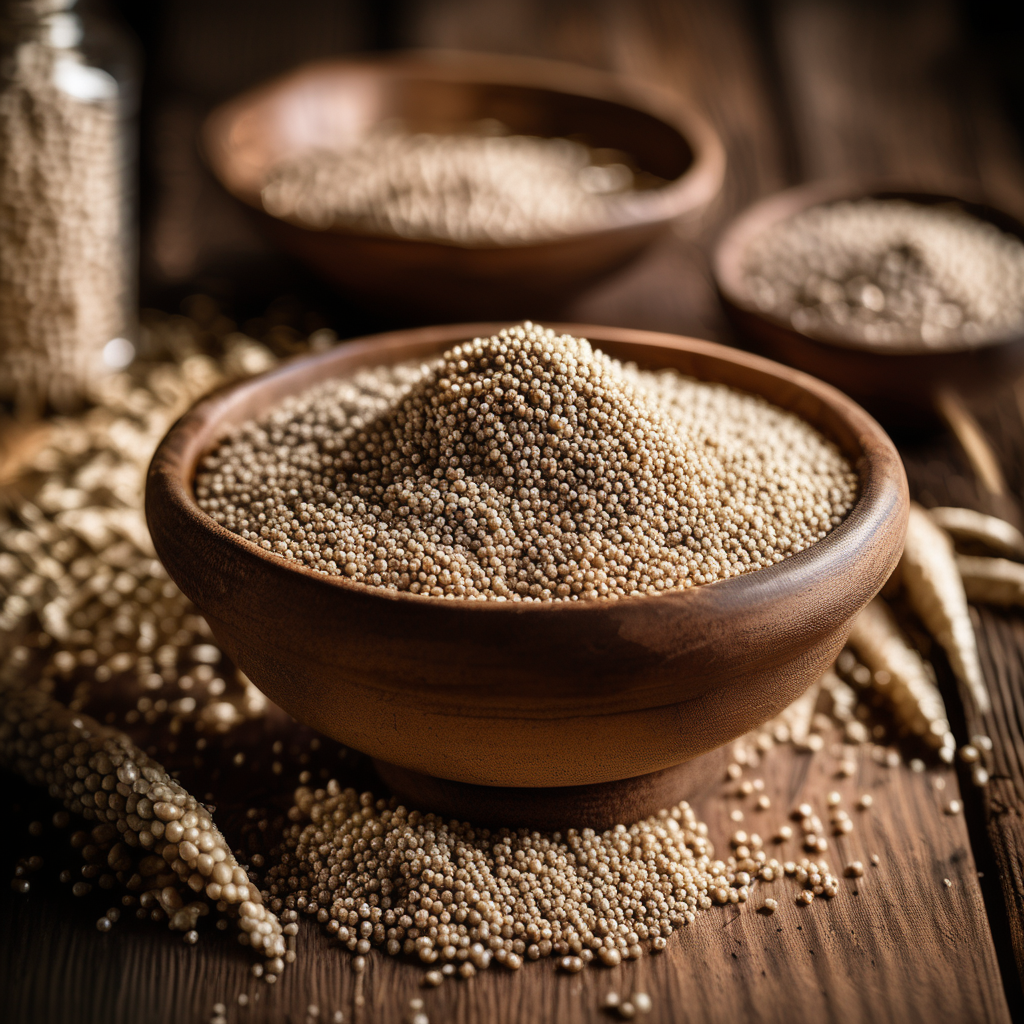Embrace the Goodness of Millets in Diet – Unlocking Health Secrets
Discover the Health Wonders of Millets: A Guide to Types, Benefits, and More!
In our journey towards a healthier lifestyle, it’s often the simple choices that make the most significant impact. One such choice is incorporating millets into our daily diet. These tiny grains pack a powerful punch of nutrition, offering a myriad of health benefits. Join me on this exploration of the diverse types of millets, their unique advantages, and the crucial information on who can and cannot enjoy these wholesome grains.
Embark on a journey towards a healthier you by embracing the wholesome goodness of millets. These tiny grains have been the unsung heroes of nutrition, and it’s time we shed light on their incredible health benefits.
Understanding Millets:
Before delving into the specifics, let’s understand what millets are. Millets are small-seeded grasses that have been cultivated for centuries, providing a rich source of nutrients, fiber, and energy.
Types of Millets
Pearl Millet (Bajra)
Bajra, a staple in many Indian households, is a powerhouse of energy. Packed with iron and magnesium, it contributes to better blood circulation and bone health.
Foxtail Millet (Kangni)
Kangni, a gluten-free option, is rich in antioxidants. It supports heart health and aids in digestion, making it an ideal choice for those with gluten sensitivities.
Finger Millet (Ragi)
Ragi, known for its high calcium content, promotes bone health. It’s a perfect addition to the diet for individuals seeking a dairy-free calcium source.
Sorghum (Jowar)
Jowar, with its high fiber content, aids in digestion and helps maintain a healthy gut. It’s an excellent choice for those looking to improve their digestive health.
Now that we’ve covered the basics of what millets are and explored the various types available, let’s dive into the highlight of this article: uncovering the remarkable health benefits of millets.
Health Benefits
Boosted Immunity Including millets in your diet strengthens your immune system, thanks to their rich vitamins and minerals.
Weight Management The fiber content in millets keeps you full, aiding in weight management and promoting a healthy metabolism.
Heart Health Certain millets, like foxtail millet, contribute to heart health by reducing cholesterol levels and supporting overall cardiovascular well-being.
Nutrient Content
Millets are a treasure trove of essential nutrients. They contain iron, magnesium, phosphorus, and B vitamins, promoting overall well-being and vitality.
Incorporating Millets into Your Diet
Incorporating millets into your diet is a delicious and nutritious way to boost your overall well-being. Explore versatile recipes and discover how these tiny grains can become a delightful part of your daily meals.
Millet Porridge for Breakfast
Kickstart your day with a nutritious millet porridge, a delightful way to incorporate millets into your breakfast routine.
Millet Salad for Lunch
Enhance your lunch with a vibrant millet salad, packed with vitamins and minerals for a midday energy boost.
Millet Chapati for Dinner
Replace traditional wheat chapatis with millet chapatis for a gluten-free, nutrient-rich dinner option.
Recipes to Elevate Your Millet Experience
Millet Upma
A flavorful and nutritious breakfast option that can be customized with your favorite vegetables.
Millet Pulao
A delicious and wholesome millet pulao that combines various millet types for a diverse nutrient profile.
Millet Ladoo
Indulge your sweet tooth with millet ladoos, a healthier alternative to traditional sweets.
Now, let’s dive into the intriguing aspect of who can truly benefit from incorporating millets into their diet. Exciting, isn’t it? Let’s explore.
Who Can Benefit from Millets
Children and Teens Millets are excellent for growing children and teenagers, providing essential nutrients for their development.
Adults For adults, millets offer a natural source of energy, aiding in maintaining an active and healthy lifestyle.
Seniors Seniors can benefit from millets to support bone health, boost immunity, and manage weight effectively.
Considerations for Those with Dietary Restrictions
Gluten Sensitivity Millets, being gluten-free, are a fantastic alternative for individuals with gluten sensitivities or celiac disease.
Diabetes Certain millets, like pearl millet, have a low glycemic index, making them suitable for individuals managing diabetes.
Now that we’ve delved into various aspects of millets, let’s shift our focus to the last segment—frequently asked questions. Below, you’ll find some commonly posed questions about millets. Feel free to explore these, and remember, if you have any queries not covered here, don’t hesitate to reach out. We’re here to address your questions and provide the information you seek.
FAQs: Unraveling the Mysteries of Millets
Q1: Can Everyone Include Millets in Their Diet?
Yes, millets are suitable for people of all ages, unless advised otherwise by a healthcare professional.
Q2: Are Millets Safe for Individuals with Gluten Sensitivity?
Absolutely! Millets are gluten-free and can be safely consumed by those with gluten sensitivities.
Q3: How Do Millets Contribute to Weight Management?
The high fiber content in millets keeps you full, curbing overeating and supporting weight management.
Q4: Can Millets Help Manage Diabetes?
Certain millets, like pearl millet, have a low glycemic index, making them a good choice for individuals managing diabetes.
Q5: What Makes Millets a Superfood?
Millets are packed with essential nutrients, promoting overall health and well-being.
As we wrap up our exploration of millets, it’s evident that these tiny grains carry a wealth of health benefits. Whether you’re a fitness enthusiast, a parent, or a senior looking for a nutritious addition to your diet, millets offer a versatile and delicious solution.
So, why wait? Embark on your journey towards a healthier lifestyle by embracing the goodness of millets in your daily meals. Your body will thank you for it!

